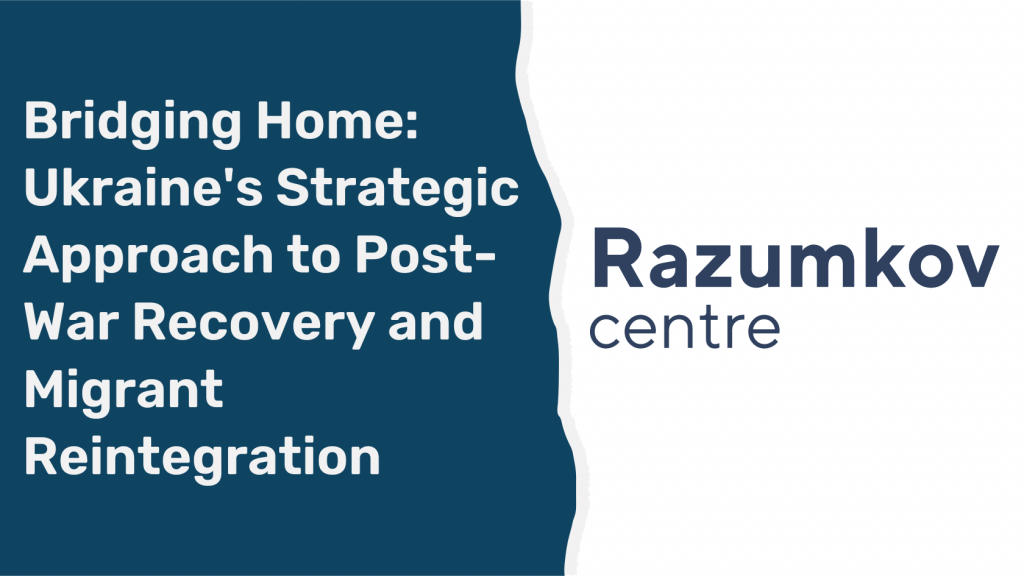
Human capital is an important factor in Ukraine’s post-war recovery. Ukraine expects a significant number of refugees who have found temporary protection abroad to return. The problems faced by Ukrainians in the host countries, the conditions of return, and the current issues of reintegration of forced migrants into Ukrainian society were the focus of a study on the gender specifics of forced migration from Ukraine to the EU in the context of the military conflict, conducted by the Razumkov Centre in November-December 2023.
The peculiarity of the study was that among the interviewed forced migrants were professional migration researchers who not only shared their experience of adaptation in host countries but also were able to professionally assess the prospects of the state policy of migrant return and provide their recommendations for its formation and implementation. This study is a vivid example of a “bridging project” in which the professional experience of Ukrainian specialists accumulated in Ukraine is used to build the country’s economic potential already at the preparation stage for post-war reconstruction. By looking at the lives of migrants from the inside, Ukrainian researchers were able to propose approaches to the policy of returning migrants that not only meet the state interests of Ukraine but also consider the specifics of the migration policies of host countries and meet the moods of migrants themselves. Respecting the interests of all parties is the main prerequisite for a successful policy of returning Ukrainian refugees to their homeland.
At the same time, the study showed that not all Ukrainian refugees from the war are ready to return to Ukraine immediately after it ends, and some are planning to stay in the host countries forever. In this situation, the Ukrainian state should maintain economic and cultural ties with its citizens. On the one hand, this will allow the economic potential and political capital of Ukrainian migrants abroad to be used in the interests of rebuilding Ukraine. On the other hand, improved employment opportunities in post-war Ukraine may lead to further waves of return if Ukrainians abroad maintain ties with their homeland. This could include working for Ukrainian companies while abroad or participating in international projects aimed at Ukraine’s Euro-Atlantic integration and post-war reconstruction.
The experience of Ukrainian specialists who understand the characteristics of the development of certain sectors of the Ukrainian economy, the needs and capabilities of Ukrainian industries and companies, and at the same time learnt the specifics of the work of businesses and organizations in their host countries, can increase the effectiveness of international cooperation and help in finding investment opportunities in the post-war recovery process. In this case, domestic professionals can become “a bridge” or a link that will help Ukraine establish close economic and political cooperation with European countries, direct Ukrainian business to European markets, and help foreign companies invest successfully in Ukraine.
When discussing the results of the study, migration experts noted that the state policy towards Ukrainian refugees should consist of two equally important areas. Assistance in return and reintegration in Ukraine for those who wish to return should be combined with a special policy of maintaining socio-economic ties with those Ukrainians who remain in host countries. This will ensure that their human potential is used for the benefit of Ukraine even while they are physically abroad.